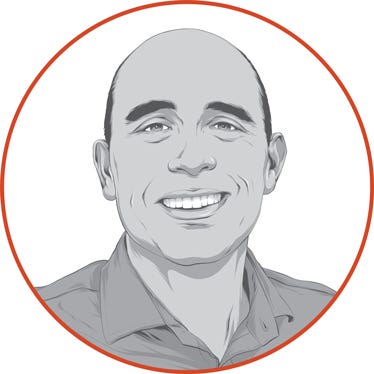
If your farm is like many others, you don’t need just any employee. You need quality employees so you can delegate items off of your plate. You are not alone.
If you skim any online ad, job search board or newspaper clipping you find phrases such as “Experienced operator needed…” “Skilled mechanic, etc.” It seems that employers are looking for experience as a main criteria to sort through applicants.
But are employers focusing on experience too much?
Let’s assume you have done your homework. You have a clear idea of the role you want your new employee to fill. You have a concise job description which you used during the search process. Your interview process was tight. Let’s assume you have two candidates in front of you. Which one do you choose?
Let’s look deeper into each applicant. One has expererience and the other does not. If you hire the one with experience you can turn him loose with little training. The experienced candidate will need little training on how to run equipment.
In your mind you may be thinking “All I have to do is plug this guy in and he will run with it.” The decision is easy. You hire the one with experience, right?
Not so fast
Every year employers hire people with experience, only to be frustrated. Experience simply does not always translate to quality. And in fact, you may need to break some bad habits (see list below). Most of the time an employee doesn’t work out because of other issues, problems, and personality traits that keep them from doing consistent, quality work.
Here are some instances when experience is overrated.
Quit Learning - Some employees have experience but they quit learning. They know what they know and have no desire to grow as an employee and learn more skills. They view themselves as a truck driver, a sprayer operator or cattle feeder. Ask them to learn new skills, take online courses and become more valuable and they often refuse. They find more ways to say “I can’t” than they will ever say “I’ll try.”
The Wrong Experience – Not all experience is good. Many farms don’t onboard, train and retain their employees with a solid process. They hire them and then turn them loose. Employees on these farms pick up all sorts of bad habits, and ways of working and communicating because there are few if any standards on some of your competitors farms.
Require Constant Supervision – Some employees simply can’t be left alone to work independently or even in teams. They require constant supervision. It’s not that these employees don’t know how to do the work it’s simply that they are easily blown off course. Maybe they lack the confidence to make decisions. Some employees need constant affirmation.
High Skill but Low Will – In our consulting work we help employers understand their employee teams. We use a matrix and ask the employer to place each one of their employees in a box. One of the boxes says “Low Will and High Skill.” There are simply some employees that have all the skills but they simply don’t care. Maybe they don’t want to work. Whatever the issue may be, they just don’t have a desire to be the best they can be at that job.
Lack of Passion– This is different than the Low Will employee because on the outside, all looks good. The employed often has many years of experience. But do they actually enjoy their work? How many times have you heard someone say that they hate their job although they have been in the same job for twenty years? Don’t assume that just because a person has done a certain type of work before doesn’t mean they even like doing it.
Skilled but Not an Expert – Some people can do the work but don’t have natural ability to become a real pro. Have you ever watched a really good excavator operator? Someone who is not only skilled but a true pro? These expert employees have the skill and the passion to become the best. They take pride in being the best and they are solid gold because they not only like the work but they are really good at it. There are certain jobs on your farm that need real pros in order to really shine. Settling for mediocre in these jobs will eventually lead you to frustration.
Extra Baggage – Some employees have all the skills and the passion but they bring along baggage. This can range from a chaotic home life to personal quirks and traits. I think back to a skilled mechanic on one of the farms I observed. He was a real pro. He had experience and a real passion for the job. His work area was also a complete disaster, a real pigsty. His personal appearance was always filthy, even on Monday after a long weekend when he had time to clean up. He also kept livestock that would often escape so he would have to leave work to herd them back in. The low level pot bust was the final straw. His personal baggage outweighed his strong experience, passion and skill.
It happens everywhere
Farmers aren’t the only ones that get caught up in the trap of hiring for experience as a main criteria. Years ago I worked at a bank. The branch manager was telling me about the latest loan officer hire. There were two candidates that applied for the position.
He was so pleased that the training would be minimal because the new employee was coming from a bank down the street and had lots of experience. The other candidate, whom I felt fit our culture and work ethic, was passed over for the more experienced candidate.
The candidate we passed over went on to become a stellar employee at another bank. The one we hired? The one with all the experience? We had to let her go within six months.
Sometimes experience isn’t worth much.
The opinions of the author are not necessarily those of Farm Futures or Farm Progress.
About the Author(s)
You May Also Like






